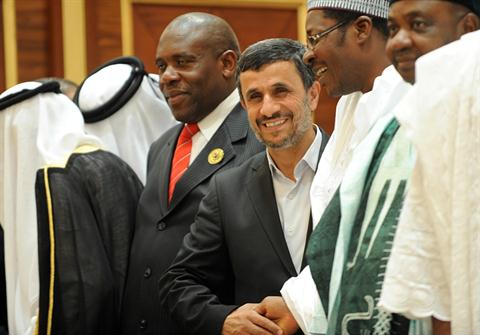CAIRO: An additional five weapons’ caches were discovered in Sinai near the Gaza border Sunday — a day after police had seized six caches — and five tunnels beneath the border were discovered and shut down.
Three men have been detained in the town of Sheikh Zuwayed near the border in relation to the latest batch of weapons caches discovered in the peninsula.
The latest caches included 100 kilograms of explosives seized in Al-Arish, rifles and ammunition near Rafah and three caches in Central Sinai containing 170 anti-aircraft missiles and 50 anti-aircraft bullets.
A security official had said Saturday that police had confiscated 190 rockets that would have had their explosive components removed and smuggled into Gaza. Additionally, landmines and 1,500 rounds of ammunition dating back to Egypt’s wars with Israel in 1967 and 1973 had also been seized.
North Sinai Tagammu party member Khalil Jabr Sawarkeh, based in Sheikh Zuwayed, seemed skeptical about the recent discoveries and whether the arms were really intended for Gaza.
“So many seizures in such a short space of time, and all the caches were unguarded, just left on their own? Usually in instances like this the authorities immediately release a list of names,” he told Daily News Egypt.
Sawarkeh also said that the three who were arrested in Sheikh Zuwayed seem to have been taken into custody for weapons possession, and was unsure about their involvement with the weapons caches found in other areas of Sinai.
The tunnels were discovered near the Salaheldin gate at the border town of Rafah as well as in farms and houses. Though tunnel activity had receded in recent months, it has increased again as holes are being punched into Egypt’s new underground barrier.
No one was arrested in connection with the tunnels and no goods were seized.
Egypt had begun building an underground barrier on the Gaza border specifically to curtail the number of tunnels used to smuggle mainly goods in Gaza, which has been suffering a three-year blockade.
Above the ground, the Rafah border crossing has remained open since June, when a deadly Israeli raid on an international aid flotilla at sea resulted in the deaths of nine activists.
Around 65,000 Palestinians have used the crossing in both directions since the opening of the border, with some 475 tons of aid being delivered into Gaza, according to Egyptian government figures.
On Sunday afternoon, Egypt granted permission to the Political Advisor of the Omani embassy in Cairo to enter Gaza with aid funds to the tune of $500,000 donated by Sultan Qaboos, the ruler of the Gulf country.
Egypt prohibits the transfer of funds into Gaza for fear that it will enter Hamas coffers, but permitted this particular transfer at the personal request of Sultan Qaboos for the month of Ramadan and the upcoming Eid festival. The monetary aid will be distributed via UNRWA to 1,200 Gazan families.

